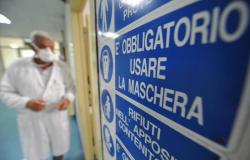OfAnna Fregonara
The approach to irritable bowel syndrome must be integrated because the syndrome is the result of the interaction between intestinal physiology and psychological factors
The syndrome ofirritable bowelalso known as Ibs (from the English Irritable Bowel Syndrome), is one of the most complex conditions treated by gastroenterologists. It is a set of related symptoms between them, the cause of which is not yet known.
Symptoms and Fodmap diet
The first “warning” is the abdominal painat least once a week in the last three months, associated with episodes of constipation or diarrhea and abdominal tension, swelling, meteorism.
A frequently adopted therapeutic approach is low Ibs diet which limits fermentable carbohydrates such as lactose, legumes, onions and wheat (Fodmap diet).
In a recently published study on The Lancet Gastroenterology & HepatologyInvolving approximately 300 women and men suffering from moderate to severe IBS, researchers compared this type of diet with a low-carb diet. After four weeks, 76% of those who followed Fodmap had a significant reduction in symptoms, compared to 71% of the other group. The benefits remained even six months after the start of the study, despite a partial return to previous eating habits.
«Diet is important, but it should be considered a point of arrival, not a starting point, because treat the symptoms, not the cause», clarifies Antonio Gasbarrini, full professor of Internal Medicine at the Catholic University and director of Cemad, Digestive System Disease Center of the Gemelli Polyclinic in Rome.
«For this reason, in light of the discoveries of the last 20 years, starting from the role of the intestinal microbiota and its dialogue with the brain (see later, ed) the approach to the diagnosis of Ibs has changed and has become a type biopsychosocial. This model considers IBS as the result of the interaction between intestinal physiology and psychosocial factors. The doctor will therefore have to act on two fronts. On the one hand he will have to prescribe laboratory investigations to exclude the presence of diseases that can be mistaken for IBS, such as celiac disease, gallstones, biliary pancreatitis and diverticular disease. Among the most common tests: serology for celiac disease or fecal calprotectin and C-reactive protein or, in more complex cases, colonoscopy. However, the specialist will also have to transform himself into a psychotherapist and understand what has happened in the person’s life – from the relationships with the parents to the moment he is experiencing – which may have altered the balance that characterizes the digestive system. Often those who suffer from IBS are a person at that moment anxious or depressed and sometimes it is sufficient to identify this aspect to resolve the symptoms, or one experiences a moment of stress and in this condition aintestinal inflammation which determines a reduction in gas reabsorption and therefore the manifestation of one of the co-symptoms of Ibs. It is estimated that 20-25 liters of gas are produced every day in the digestive system through biofermentation which, in a healthy person, are reabsorbed and expelled mainly through breathing”, specifies Gasbarrini.
«Only after excluding all diseases with overlapping symptoms and possible psychological causes is the diagnosis of IBS made. At this point, under medical supervision, the indication of a possible personalized diet on the consumption of carbohydrates and fermentable foods comes into play, which will work on inflammation and gas production, improving the quality of life”, concludes the expert.
Microbiota focus
The digestive system is called the “second brain” because its 400 million neurons communicate with those of the brain, which has 75 billion. «The microbiota lives in the “second brain”, that community of bacteria, fungi and viruses that educates our immune system, has a role
for metabolism and produces neurotransmitters”, explains Gasbarrini.
«Today, in the process of experimentation, we are trying the path of microbiota transplant from a healthy donor to a patient, in order to restore the balance of the intestinal flora. In the case of IBS we would need “super donors”, because the biomass should have specific bacteria, those that allow us to eat pasta, fruit and vegetables, “unpacking” complex carbohydrates, making them absorbable and eliminating waste. It is not excluded that they will be able to be produced in the future specific biomasses in the laboratory».
June 27, 2024
© ALL RIGHTS RESERVED






